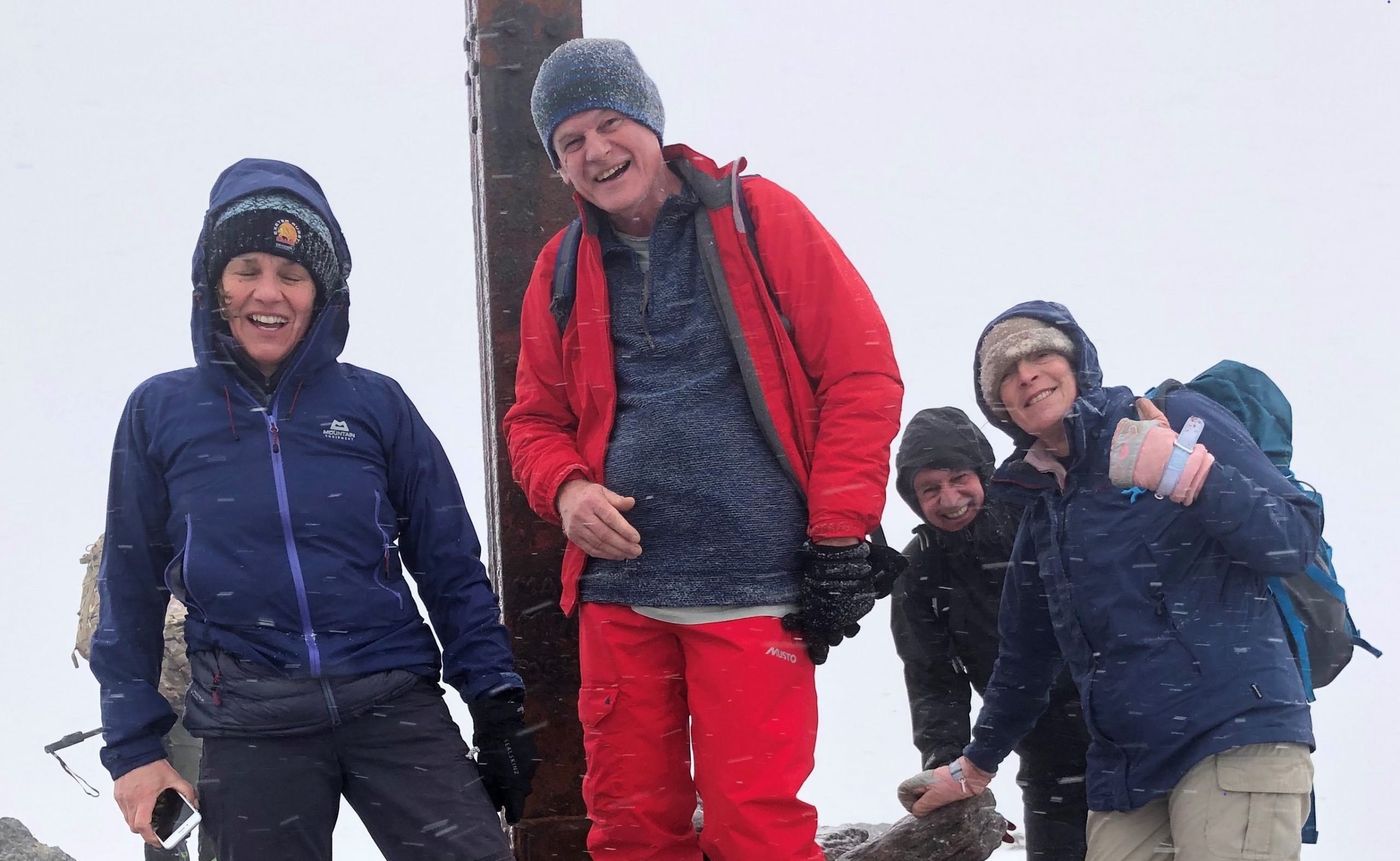Our “Five Minutes With” series seeks to discover what are the habits, inspirations and obstacles that have shaped the careers of leading cancer researchers and influencers.
Willie Hamilton is professor of primary care diagnostics at Exeter University. He’s been at the forefront of early diagnosis research, from writing NICE guidelines to winning CRUK’s first Catalyst award (CanTest). To top it off, he recently won the People’s Choice award at the CRUK early diagnosis conference, confirming just how popular and well known he is.
When do you get your best research ideas?
Interesting first word, ‘when’? Not ‘how’. I’ll answer both in a ‘buy one, get one free’ spirit. There’s no pattern. Some just come when I walk the dogs at 7a.m (I live on a farm, and if home, I do an hour’s walk before work). The routes are all off road, and the dogs know them, so my mind idly wanders. Don’t get this wrong; much of the time is spent avoiding brambles, puddles and horse manure, and only one in a hundred ‘great thoughts’ are actually any use. The other time inspiration strikes is in unit meetings. We get all the team together monthly and each person updates the rest on their progress (or lack of) and we encourage attendees to chip in with ideas (which I steal).
Which failure(s) changed you the most?
My ears failed. Or more accurately, Failed. At 40 I was essentially a GP, with a fledgling research career. I was offered a cochlear implant (my hearing was pretty awful), and it went awry. It got infected, with all sorts of operations and treatments needed. The problem is that you have to sacrifice the remaining hearing (which wasn’t much anyway) for the implant. So, I was unfit to be a GP. Most patients say their doctor doesn’t listen to them: I was the next step of not being able to hear them. But the timing was ‘good’ – I’d just got a £200k grant from the Department of Health to study cancer symptoms – and in retrospect I’d have really struggled to conduct this whilst still doing my practice. I can’t say I recommend deafness as a career choice, but I can see the upside…
What’s your top life hack? (trick, shortcut, skill, or novelty method that increases productivity and efficiency)
I’m not sure how efficient it is, but I use my e-mail inbox as my ‘to do’ list. So, I don’t ‘delete’ an e-mail till it’s actioned. This means I don’t omit things I’m supposed to do, but it does mean the occasional irritating/awkward/uncomfortable action you have to take lurks in the inbox, staring at you with a beady eye till it’s done. This behaviour is 90% productive, and 10% counter-productive. The counterproductive bit is that you sometimes do something a bit early, when if you sat on it, it would go away. You need to protect yourself, though. I’ve got an e-mail folder called ‘holiday’ which I use when away, as a second – slow – to do list. Its main purpose is to stop me answering on holiday (and partly works).
I’m inspired most by…
Harry Hall, now dead. A physician and friend, who was so well-read, erudite and cerebrally challenging. He practised evidence-based medicine before it even existed. Of the living, Debbie Sharp. I’m the Life President of her fan club. She supported me in those early deaf days, when anyone sensible would have left me on the professional scrap heap.
What advice would you give to someone starting their first research group?
I’m not sure I know; mine developed organically. I suppose I did get the grants (with help, of course), and made good appointments, but I never thought my destiny was the lead a research group – but it’s happened. Perhaps the most important thing it to share – ideas, data, wisdom, time. We’re a desperately collaborative group. In theory, your best ideas can then be nicked – for every time that happens there’s a hundred where sharing something has led to a bigger better piece of work.
What’s the next big thing in cancer? What will be the game changers?
We’ve probably largely sorted out who should be tested for possible cancer, and when. It’s the how now that matters. Cell-free DNA isn’t yet close to clinical use, but it’s the most promising thing I’ve seen in recent years.
The views expressed are those of the author. Posting of the blog does not signify that the Cancer Prevention Group endorse those views or opinions.

